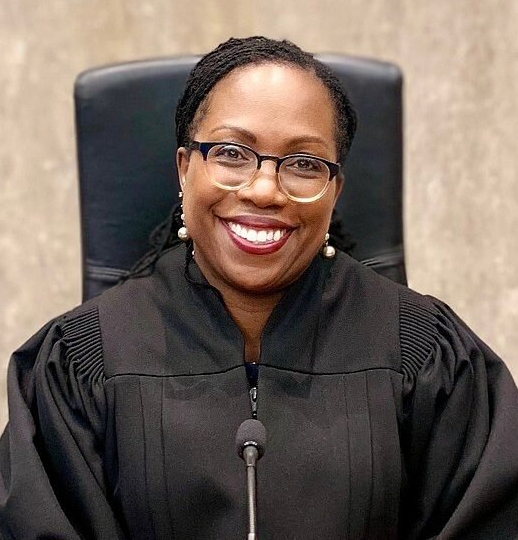Civic Education in the News
The American Lawyers Alliance supports Law Related Education in our schools and communities. ALA is about making sure that all Americans know the value of freedom and liberty under the U.S. Constitution, and honoring those who make it possible. It’s about sharing ideas and cooperative efforts so that we can make a difference in your community.
Great Articles and Resources about Civic Education in America

Rebecca Winthrop
Co-director – Center for Universal Education Senior Fellow – Global Economy and Development

Amanda Robert
ABA Journal

Stacey Steinberg
Master Legal Skills Professor, University of Florida Levin College of Law

Annenberg Public Policy Center - University of Pennsylvania
Annenberg Civics Knowledge Survey - Amid Pandemic and Protests, Civics Survey Finds Americans Know More of Their Rights

Joe Heim
Editor - Washington Post, Covering a range of topics, including race, schools, student culture, white nationalism, Native American issues
Supreme Court Justices in the News
Senate Confirms Ketanji Brown Jackson for Supreme Court
Ketanji Brown Jackson is a former federal judge and public defender who was confirmed as the first Black woman to serve on the U.S. Supreme Court.
Who Is Ketanji Brown Jackson?
Ketanji Brown Jackson, born Ketanji Onyika Brown in 1970, is a former federal judge and public defender nominated by President Joe Biden to become an associate justice on the Supreme Court. She was the first Black woman to be nominated—and confirmed—for a seat on the high court. Jackson grew up in Miami and shared in her high school yearbook her goal to eventually receive a judicial appointment. She obtained both her undergraduate and law degrees from Harvard and is married to a fellow Harvard alum.
Supreme Court Nomination
On February 25, 2022, President Biden announced he was nominating Jackson to fill the Supreme Court seat left open by the retirement of Justice Stephen Breyer. The U.S. Senate voted to confirm her on April 7, 2022. Once she's sworn in, Jackson will be the first Black woman to serve on the Supreme Court. She will also be the first federal public defender to sit on the court and the first justice since Thurgood Marshall to represent criminal defendants.
Legal Career
Though Jackson worked for several private law firms, she spent most of her legal career as a public servant. After earning her law degree from Harvard in 1996, she clerked for two federal judges. She held a Supreme Court clerkship for Justice Breyer during the 1999-2000 term.
Jackson took a job with the bipartisan U.S. Sentencing Commission in 2003, the first of her two stints on the commission. From 2005 to 2007, she worked as an assistant federal public defender in Washington, D.C. Her caseload included representing indigent clients and some detainees held at Guantanamo Bay.
Jackson returned to private practice before being selected to serve as vice-chair of the U.S. Sentencing Commission in 2010. She was seen as a consensus builder in shaping federal sentencing policy at a time when federal prisons were over capacity. The commission came to a unanimous agreement to lower federal drug sentences and granted this relief retroactively.
Ascension to the Bench
In 2012, Jackson was nominated by President Barack Obama to join the U.S. District Court in Washington, D.C. The Senate confirmed her by voice vote in March 2013. On this court, Jackson's notable cases included a 2019 ruling that President Donald Trump's former White House counsel could not use executive privilege to avoid a congressional subpoena. Her decision noted, "Presidents are not kings."
On April 19, 2021, President Joe Biden nominated Jackson to join the U.S. Court of Appeals. Her Senate confirmation hearing had some contentious moments, such as when one senator asked if Jackson had been concerned that her role as a public defender had returned criminals to the streets. Jackson answered that her work had been a crucial part of the justice system.
In April 2022, Jackson was confirmed with a 53-47 vote, with the support of 50 Democratic senators and three Republicans.
When Was Ketanji Brown Jackson Born?
Ketanji Onyika Brown was born on September 14, 1970, in Washington, D.C. Her parents, Johnny and Ellery Brown, wanted to honor their ancestry and asked a relative serving in the Peace Corps in West Africa for a list of African names for their daughter. The name they selected, Ketanji Onyika, means "lovely one."
Childhood and Education
Jackson did well in school while growing up in Miami. At Palmetto Junior High, she was selected as a school "mayor." She became president of her class at Miami Palmetto Senior High School, was voted "most likely to succeed" and stood out on the school's vaunted speech and debate team.
Jackson excelled at oratory, traveling across the country for speech competitions and becoming a national champion. Her visit to Harvard University for one competition inspired Jackson to apply to the Ivy League school. She enrolled there in 1988.
Jackson's college experience included joining an improv troupe, On Thin Ice. She also performed in a production of Little Shop of Horrors and was once a scene partner to Matt Damon in drama class.
In addition, Jackson focused on her studies and future legal career. Her senior thesis was "The Hand of Oppression: Plea Bargaining Processes and the Coercion of Criminal Defendants." She graduated magna cum laude in 1992.
Law School
Prior to law school, Jackson spent a year working for Time magazine and serving as an intern for the Neighborhood Defender Service of Harlem. In 1993, she entered Harvard Law School. She became an editor on the law review and graduated cum laude in 1996.
Marriage and Children
Jackson married Patrick Graves Jackson in 1996. The pair met while they were both undergrads at Harvard. Though their backgrounds were different—Jackson was a Black woman whose guidance counselor had discouraged her from setting her sights on Harvard, while Patrick was a white man whose family members had attended the university for generations—they fell in love.
Courtesy of https://www.biography.com/law-figure/ketanji-brown-jackson
Senate Confirms Amy Coney Barrett for Supreme Court
Following a unanimous vote by the Judiciary Committee last week, the Senate just confirmed Seventh Circuit Court of Appeals Judge Amy Coney Barrett to become the 115th Associate Justice on the United States Supreme Court.
“Having confirmed her to the Circuit Court in 2017 with bipartisan support, the Senate has already undertaken a thorough and rigorous review of her record,” Sen. Ted Cruz (R-TX) said after President Trump made the nomination last month.
Throughout Justice Barrett’s career, she has faithfully upheld our U.S. Constitution as written. The American Bar Association gave Barrett its highest rating, and she has an impressive track record across the legal profession—as a judge, professor, and litigator.
Most important, she will bring a valuable new perspective to our High Court:
- Justice Barrett is the first mother of school-aged children to become a Supreme Court Justice. She is also only the fifth woman ever to serve.
- As the mother of a child with special needs, she understands the issues and concerns confronting our nation’s most vulnerable people.
- Justice Barrett will be the only current justice to have a law degree from a school other than Harvard or Yale. She graduated at the top of her class from Notre Dame Law School in Indiana.
Justice Barrett has made her philosophy clear: She will not legislate from the bench. “Courts have a vital responsibility to the rule of law, which is critical to a free society, but courts are not designed to solve every problem or right every wrong in our public life,” she said during her confirmation hearings. “The policy decisions and value judgments of government must be made by the political branches, elected by and accountable to the people,” she added.
One letter—written by Justice Barrett’s former law clerks—calls her approach principled and independent-minded. “Judge Barrett taught us that a good judge will not always like the results she reaches; a good judge goes wherever the law leads,” it reads.
Justice Barrett is the very model of a sympathetic yet impartial judge, according to her colleagues at Notre Dame Law School. She is exactly the type of person whom the American people deserve to have sitting on their Supreme Court.
“If we are to protect our institutions, and protect the freedoms, and protect the rule of law that’s the basis for the society and the freedom that we all enjoy—if we want that for our children and our children’s children—then we need to participate in that work,” Justice Barrett said.
A Loss for America Unlike No Other
Ruth Bader Ginsurg, the second woman to serve on the Supreme Court and a pioneering advocate for women’s rights, who in her ninth decade became a much younger generation’s unlikely cultural icon, died on Friday at her home in Washington. She was 87.
Barely five feet tall and weighing 100 pounds, Justice Ginsburg drew comments for years on her fragile appearance. But she was tough, working out regularly with a trainer, who published a book about his famous client’s challenging exercise regime. As Justice Ginsburg passed her 80th birthday and 20th anniversary on the Supreme
Court bench during President Barack Obama’s second term, she shrugged off a chorus of calls for her to retire in order to give a Democratic president the chance to name her replacement. She planned to stay “as long as I can do the job full steam,” she would say,sometimes adding, “There will be a president after this one, and I’m hopeful that that president will be a fine president.”
Her years as the solitary female justice were “the worst times,” she recalled in a 2014 interview. “The image to the public entering the courtroom was eight men, of a certain size, and then this little woman sitting to the side. That was not a good image for the public to see.” Eventually she was joined by two other women, both named by Mr.
Obama: Sonia Sotomayor in 2009 and Elena Kagan in 2010.
After the 2010 retirement of Justice John Paul Stevens, whom Justice Kagan succeeded, Justice Ginsburg became the senior member and de facto leader of a four-justice liberal bloc, consisting of the three female justices and Justice Stephen G. Breyer. Unless they could attract a fifth vote, which Justice Anthony M. Kennedy provided on increasingly rare occasions before his retirement in 2018, the four were often in dissent on the ideologically polarized court.
Justice Ginsburg’s pointed and powerful dissenting opinions, usually speaking for all four, attracted growing attention as the court turned further to the right. A law student, Shana Knizhnik, anointed her the Notorious R.B.G., a play on the name of the Notorious B.I.G., a famous rapper who was Brooklyn-born, like the justice. Soon the name, and
Justice Ginsburg’s image — her expression serene yet severe, a frilly lace collar adorning her black judicial robe, her eyes framed by oversize glasses and a gold crown perched at a rakish angle on her head — became an internet sensation.
Words from her PeersNew Title
Justice Stephen Breyer’s thoughts on civic education and advice to ABA’s youngest members.
U.S. Supreme Court Justice Stephen Breyer spoke remotely to ABA President Judy Perry Martinez during the General Assembly of the 2020 ABA Annual Meeting. The following is an excerpt from that conversation:
“Martinez closed her conversation with Breyer by asking the justice to share a few pieces of advice with the ABA’s youngest members as well as with its more senior attorneys.
Breyer encouraged law students to learn about the government and said he wished civics was restored as a required course. To those who are graduating, he said he couldn’t tell them how to live their lives, but he hoped a few things for them.
“I can hope you’ll find someone to love,” he said. “I can hope you’ll have a job that is rewarding, and I can hope you will participate. Participate in public life. And there are a million ways to participate.
“You can join a local library association. You can try to be a school board member. You can vote. You can learn about the issues going on. You can talk to others.”
To the senior members, Breyer said, like he tells himself, “you just keep going.”

We Honor Her
A note from the folks at ICivics
Justice Sandra Day O'Connor
Presidential Fun Facts
Lincoln Logs are named after Abraham Lincoln and the log cabin where he was born. John Lloyd Wright, son of famous architect Francis Lloyd Wright, invented them.
Andrew Johnson is the only tailor ever to be president. As president, he would typically stop by a tailor shop to say hello. He would wear only the suits that he made himself.
The term “O.K.” derives from President Martin Van Buren (1782-1862) who was known as “Old Kinderhook” because he was raised in Kinderhook, New York. “O.K.” clubs were created to support Van Buren’s campaigns.
Martin Van Buren was the first U.S. president to be born a United States citizen. All previous presidents were born British subjects.
Six presidents were named James: Madison, Monroe, Polk, Buchanan, Garfield, and Carter.
President Dwight David Eisenhower (1890-1969) was the only president to serve in both WWI and WWII.
Richard Milhous Nixon (1913-1994) was the first president to visit all 50 states and the first to visit China. He is the only president to resign.
William Henry Harrison (1773-1841) holds the record for the longest inauguration speech in history at 8,578 words long and one hour and 40 minutes. Unfortunately, he gave the speech during bad weather and a month later, he was dead from pneumonia, making his the shortest presidency on record.
“Teddy Bears” were so named when Theodore “Teddy” Roosevelt (1858-1919) refused to shoot a small bear cub one day. The incident was reported in the news, which inspired a toy manufacture to come out with the cute stuffed animals.
Abraham Lincoln was the first president to ever be photographed at his inauguration. In the photo, he is standing near John Wilkes Booth, his future assassin.
Gerald Ford was the first person to be both vice president and president without being elected by the people. He was appointed vice president when Spiro Agnew resigned and he succeeded to the presidency when Nixon resigned.
Abraham Lincoln (1809-1865) is the only U.S. president who was also a licensed bartender. He was co-owner of Berry and Lincoln, a saloon in Springfield, Illinois.

